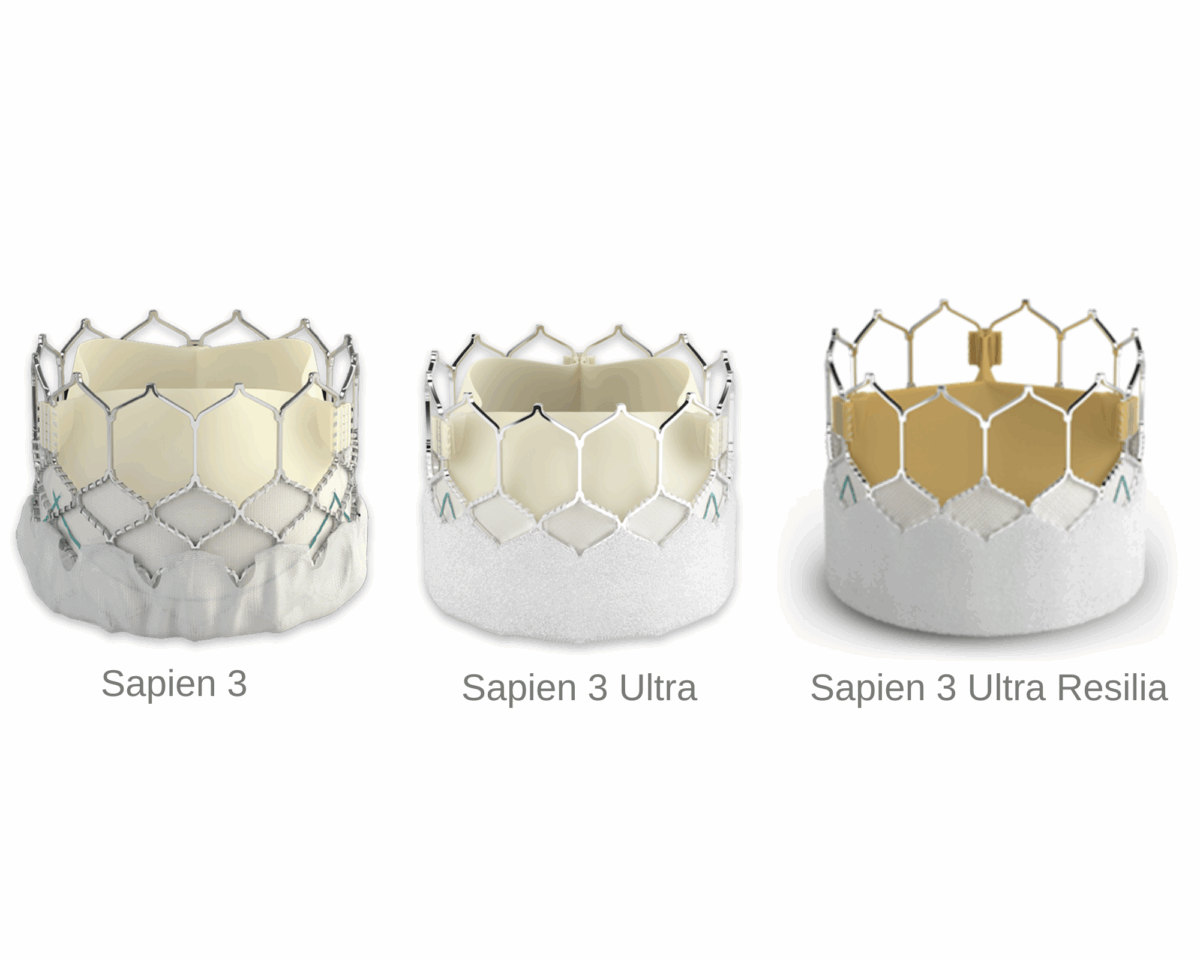
Edwards Lifesciences Corp.’s Sapien 3 platform has been approved for a new indication.
The Food and Drug Administration recently cleared the line of catheter-based heart valves, which includes Sapien 3, Sapien 3 Ultra and Sapien 3 Ultra Resilia, for severe aortic stenosis in patients before they’ve begun to show symptoms.
It marks the first FDA approval for transcatheter aortic heart valve replacement (TAVR) in asymptomatic patients, according to the company.
“It’s a pivotal shift from reactive to proactive care, made possible by decades of innovation in both science and technology,” Larry Wood, corporate vice president and group president of TAVR and Surgical, told the Business Journal.
Severe aortic stenosis occurs when the aortic valve is narrowed, reducing blood flow to the body. It’s the most common type of heart valve disease, affecting as many as 2.5 million older Americans. 900-Participant Clinical Trial
One in 10 patients experiencing symptoms of severe aortic stenosis may die within five weeks without treatment, according to the company.
Symptoms, however, are often mistook as normal signs of aging and can be difficult to detect.
Historically, the main treatment option for asymptomatic patients was close monitoring. “Open-heart surgery carried significant risks, and there were few, if any, durable tissue valve options available,” Wood said. “So, waiting until the benefits clearly outweighed the risks was considered the safest course.”
Expanded approval for the Sapien 3 platform was based on data from Edwards’ Early TAVR trial. “As we saw in the EARLY TAVR trial, patients originally designated as asymptomatic became symptomatic in sudden and unpredictable ways, underscoring the importance of early evaluation by a heart team to improve patient outcomes and benefit the healthcare system,” Dr. Philippe Genereux, director of the structural heart program at Gagnon Cardiovascular Institute at Morristown Medical Center, said in a statement.
The trial, led by Genereux, assessed 900 participants who displayed better outcomes with TAVR opposed to clinical surveillance after four years of follow up. The data was published last October in The New England Journal of Medicine.
Edwards is comparing TAVR versus clinical surveillance in another study, dubbed the Progress trial, in patients 65 years and older with moderate aortic stenosis. The company plans to present results in late 2026, according to Wood.
Shares Up After Q1 Earnings
Edwards in April reported that first quarter revenue grew 6.2% to $1.4 billion (NYSE: EW). Quarterly earnings of 64 cents per share beat the Zacks Consensus estimate by 6.7%. Sales for TAVR, by far Edwards’ largest business segment, increased by 3.8% to $1.05 billion, surpassing company expectations, according to Bernard Zovighian, CEO of Edwards.
“TAVR growth in the quarter was better than expected as clinicians continue to adopt our best-in-class SAPIEN technology,” Zovighian said in an April 23 earnings call.
Shares rose 6.6% to $75.10 and a $44.9 billion market cap in the subsequent trading session following the earnings release.
Edwards raised its full-year guidance by $100 million to account for recent movement in foreign exchange rates. It now anticipates total company sales of $5.7 billion to $6.1 billion.
The company did note that the announced reciprocal tariffs and the closing of its JenaValve Technology acquisition, set to be completed by the middle of this year, are expected to put “pressure” on its operating margin but that it’s “implementing plans to mitigate these anticipated costs.” n
